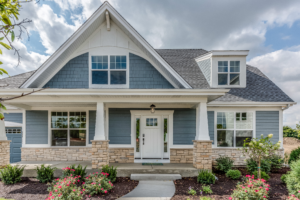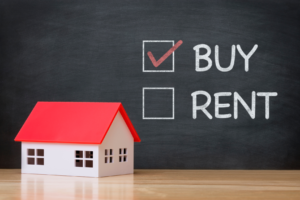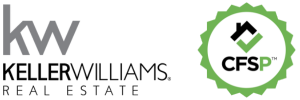If you’re thinking about selling your home, it’s easy to get caught up in the excitement of cashing in on your property. However, selling a house comes with a variety of costs that many sellers don’t fully anticipate. Before listing your home, it’s important to understand what expenses you’ll face so you can plan accordingly and avoid surprises.
Here’s a breakdown of the key costs involved in selling your house.

Real Estate Agent Commission Fees
The biggest expense when selling a house is typically the commission paid to real estate agents. This fee is usually shared between the seller’s agent and the buyer’s agent, and it typically ranges between 5% to 6% of the final sale price.
For example, if you sell your house for $400,000 and the commission is 5%, you’ll owe $20,000 in commissions. While this may seem steep, working with a REALTOR® can help you sell faster and often at a higher price, making the commission worth it in most cases.

Home Repairs and Improvements
Before listing your house, you’ll likely need to invest in repairs and improvements to make it more attractive to buyers. These can range from minor cosmetic touch-ups to larger repairs for issues like a leaky roof or outdated plumbing.
Minor repairs:
Fixing things like leaky faucets, chipped paint, or broken tiles may cost a few hundred to a few thousand dollars.
Major renovations:
If you’re considering major updates like remodeling the kitchen or replacing the roof, expect to spend several thousand dollars or more. In a market where homes sell quickly, it is unlikely that a major renovation makes sense. It’s best to consult with a Realtor before committing to major renovations.
It’s important to focus on upgrades that offer a solid return on investment. Consulting with a real estate professional can help you decide which repairs are worth the cost and will help maximize your home’s value.
Staging and Presentation Costs
In today’s competitive market, staging your home can make a big difference. Staged homes not only tend to sell faster, but they often sell for a higher price because they allow buyers to envision themselves living in the space.
Professional staging services: These can range anywhere from $1,500 to $5,000 or more, depending on the size of your home and the level of staging required.
DIY staging: If you’re on a tighter budget, you can stage your home yourself by decluttering, cleaning, and rearranging furniture, though this will still come with costs for supplies and potential storage rental.
Additionally, you’ll need to consider the cost of professional listing photos, which typically run between $150 to $500, depending on your location and the quality of the photographer.
Closing Costs for Sellers
Closing costs aren’t just for buyers! As a seller, you’ll have your own set of closing expenses to cover.
- Conveyancing – Tax certifications, Use & Occupancy Inspections, Sewer certification, etc.
- Notary Fees
- HOA Documents (if applicable) – Communities that have an HOA will charge the seller for a resale certificate and documentation that goes with it. These fees are generally $400-600.
- Transfer Tax is typically 1% of the sale price.
- Final Utility Bills
- Any liens on your house

Mortgage Payoff
If you still owe money on your mortgage, the outstanding balance will need to be paid off at closing. It’s important to note that your final payoff amount may be higher than the balance listed on your most recent mortgage statement because it will include any interest that’s accrued up until the closing date.
Additionally, if you have a prepayment penalty in your mortgage agreement, you may be charged extra for paying off the loan early. Be sure to check with your lender to confirm any penalties or fees.
Concessions to the Buyer
In a buyer’s market, you may need to offer concessions to make your home more attractive. Common concessions include:
- Covering some of the buyer’s closing costs
- Offering a home warranty to cover repairs after the sale (costing between $300 to $600)
- Making additional repairs requested after the home inspection

Moving Costs
Once your home is sold, don’t forget to factor in the cost of moving to your next place. Depending on how far you’re moving and how much you’re transporting, this could range from a few hundred dollars for a local move to several thousand dollars for a long-distance relocation.
If you’re downsizing or decluttering in the process, you may also need to budget for storage units or junk removal services.
Final Thoughts: Plan Ahead for a Smooth Sale
Selling your house can be a profitable venture, but it’s essential to be prepared for the costs involved. By understanding the expenses ahead of time, you can budget accordingly, avoid financial stress, and ensure a smoother transaction.
To get a clear idea of your potential costs, speak with your REALTOR®. They can help you navigate these expenses and ensure that you’re making smart decisions throughout the home-selling process.

Is It Time to Downsize? 7 Key Signs to Consider
Life is full of transitions, and one of the most significant decisions many homeowners face is whether it’s time to downsize. Moving to a smaller,

Getting Your Home Ready to Sell: 10 Tips for Maximizing its Value
Selling your home is a significant decision, and it’s important to prepare it properly to ensure you get the best return on your investment. Whether

How Much Does It Cost To Sell My House?
If you’re thinking about selling your home, it’s easy to get caught up in the excitement of cashing in on your property. However, selling a

Market Insights Every Seller Should Know!
Over the past year, the real estate market has undergone a noticeable shift, characterized by record-high interest rates and rising inflation, which has resulted in

10 Essential Home Maintenance Tasks To Maintain the Value of Your Home
Home maintenance is a critical aspect of homeownership that helps to keep your property in top condition, improve its value, and ensure a safe and comfortable living environment. Whether you’re planning to sell your home soon or you simply want to keep it in tip-top shape, here are some essential home maintenance tasks that every homeowner should do.

Top 3 Housing Market Questions
When it comes to what’s happening in the housing market, there’s a lot of confusion going around right now. You may hear one thing in conversation
Let's Connect Today!


